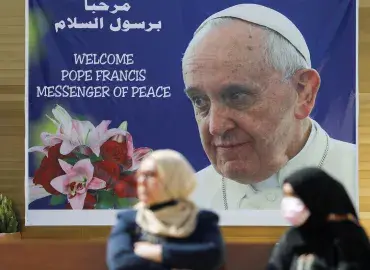
Social media dialogue advocates from every Iraqi province, representing seven religions and six ethnic groups gathered in Erbil, Iraq, for a week-long training provided by the International Dialogue Centre (KAICIID) to develop skills in “Social Media as a Space for Dialogue”.
Speaking via video message to the 75 participants at the opening ceremony on 31 August 2016, KAICIID Secretary General Faisal Bin Muaammar explained the Centre encourages dialogue between followers of different religions by using various platforms, of which social media is one of the most important.
“This programme was launched a year ago, and in its implementation, we ensure inclusivity, integrating participants from across the Arab world to offer equal opportunities to listen, discuss, and engage all participants. We wish to enhance their expertise in dialogue and capacity building.”
He added: “Our priority in training is to ensure that diversity is the basis of exchange and coexistence, as well as discussions around the common values that bring us all together.”
The KAICIID social media trainings focus on participants active in social media in the Arab world. Trained participants will be better able to engage in constructive dialogue through social media to build bridges between members of different cultures and followers of different religions in the region. Often violent and extremist narratives dominate online discourse due to the lack of convincing counter-narratives. While young religious leaders and dialogue experts are best placed to offer a credible, alternative perspectives, they often lack the necessary social media skills. KAICIID’s training helps them to acquire attention in an often raucous debate, build awareness of the value of diversity, empathy, mutual understanding, equality and respect in daily life. By reframing the online discourse, hate speech can be rejected thus contributing towards reconciliation, conflict prevention and to non-violent dialogue as a means to resolve current conflicts.
The Erbil training, is the third of series that was launched at a pilot workshop in Amman, Jordan, in September 2015. The series returned to Amman in 2016, followed by Cairo, Egypt, and now convened in Iraq, which is a focus country for KAICIID’s work on social cohesion under its programme “United against Violence in the Name of Religion”.
In his remarks, Bin Muaammar said that KAICIID chose the theme “United against Violence in the Name of Religion” in response to growing terrorism around the world. He said: “There are many extremist and terrorist acts that have been committed in the name of religion, while religion is innocent of them. So we must unite against using any religion as a justification for any terrorist act.”
The manipulation of religion by extremist groups like the so-called ISIS was a key point in the discussions in Erbil. The Yazidi community, like many other religious minorities in the region, has been subjected to brutal persecution by ISIS. The Yazidi participants at the training said that ISIS’ actions were contradicted by Islamic teachings.
In an interview with Kurdish TV station Rudaw TV, one of the Yazidi participants said: “The teachings of ISIS and Islamic religious leaders are not the same. We know that Islam respects all religions, that’s why we say that Islam is innocent of ISIS’ crimes.” He continued: “We call on religious leaders to bring international attention to the cause of the Yazidis and to condemn what we have endured through their houses of worship and religious organizations. We want the future generation to know what happened to the Yazidis in Sinjar.”
The Erbil training opened with a panel of experts, including Shaikh Dr. Hussein Ghazi Hussein Al-Samerrai, who is a member of the supreme body of the Iraqi Senior Scholars Jurisprudence Council for Dawa and Ifta'a, the Chairman of Iraq Scholars Council in Samarra, and a member of KAICIID’s Advisory Forum; Father Alper Hisham, representative of Patriarch Louis Raphaël I. Sako; as well as two participants, Ms. Naveen Smooqi and Hassan Habl Almateen. Ms. Smooqi and Mr. Almateen, having previously participated in the 2015 training in Amman, offered insights into the benefits of the programme,. The panel emphasized the essential role of religious leaders in peacebuilding and in enabling constructive social media dialogue.
The participants at the Erbil training also interreligious dialogue training from by KAICIID Senior Advisor Mohammed Abu-Nimer, who highlighted case studies when dialogue was effectively used as a peacebuilding tool. He also discussed dialogue’s role in debunking stereotypes, improving a respectful and knowledgeable understanding of the “Other”, and promoting coexistence.
The trainings held from 31 August to 3 September 2016, challenged the trainees to examine their stereotypes. For some trainees who had experienced great trauma, personal injury and loss, it was difficult to remove themselves from their horrific experiences of the conflict. During the course of the training, they engage with other trainees to find common ground in their values of humanity and desire for peace.
The next “Social Media as a Space for Dialogue” training will take place in Tunisia this coming November, and will bring together participants from the Maghreb region.

